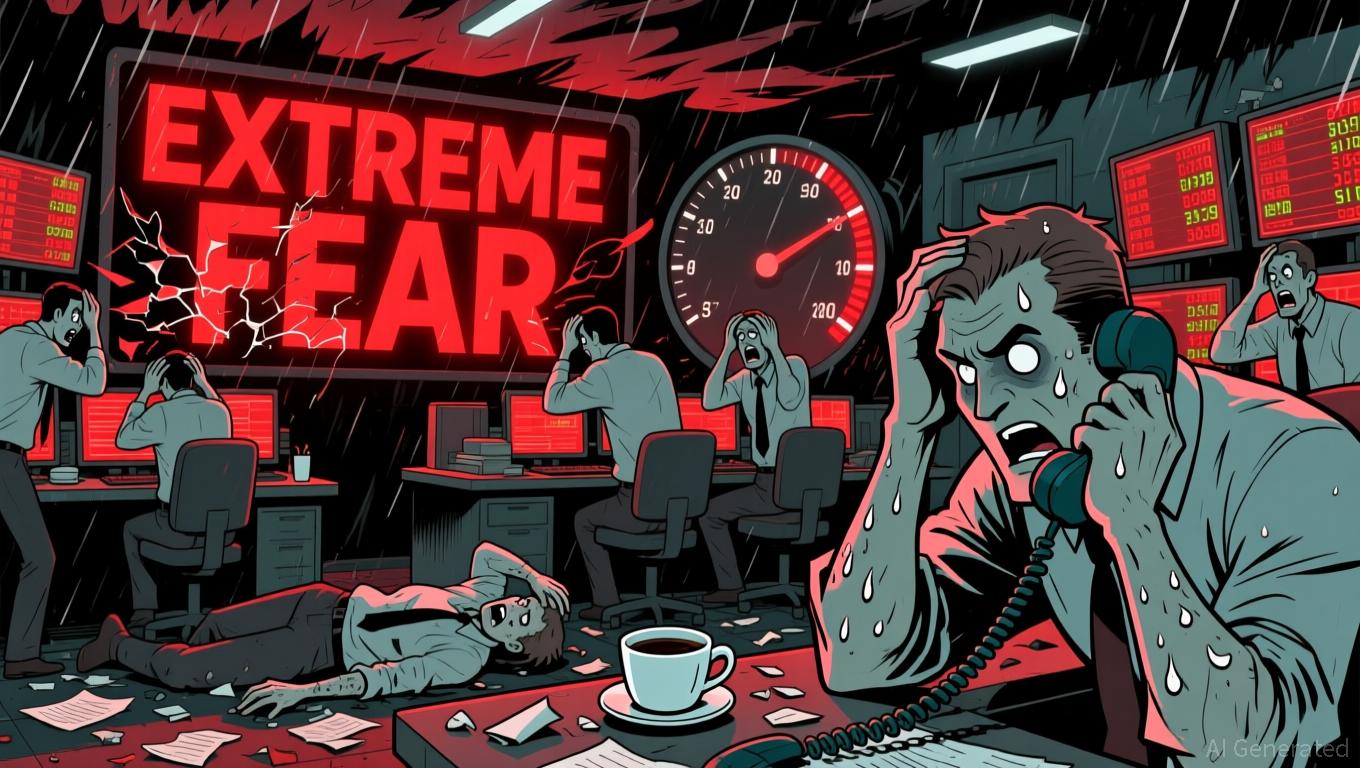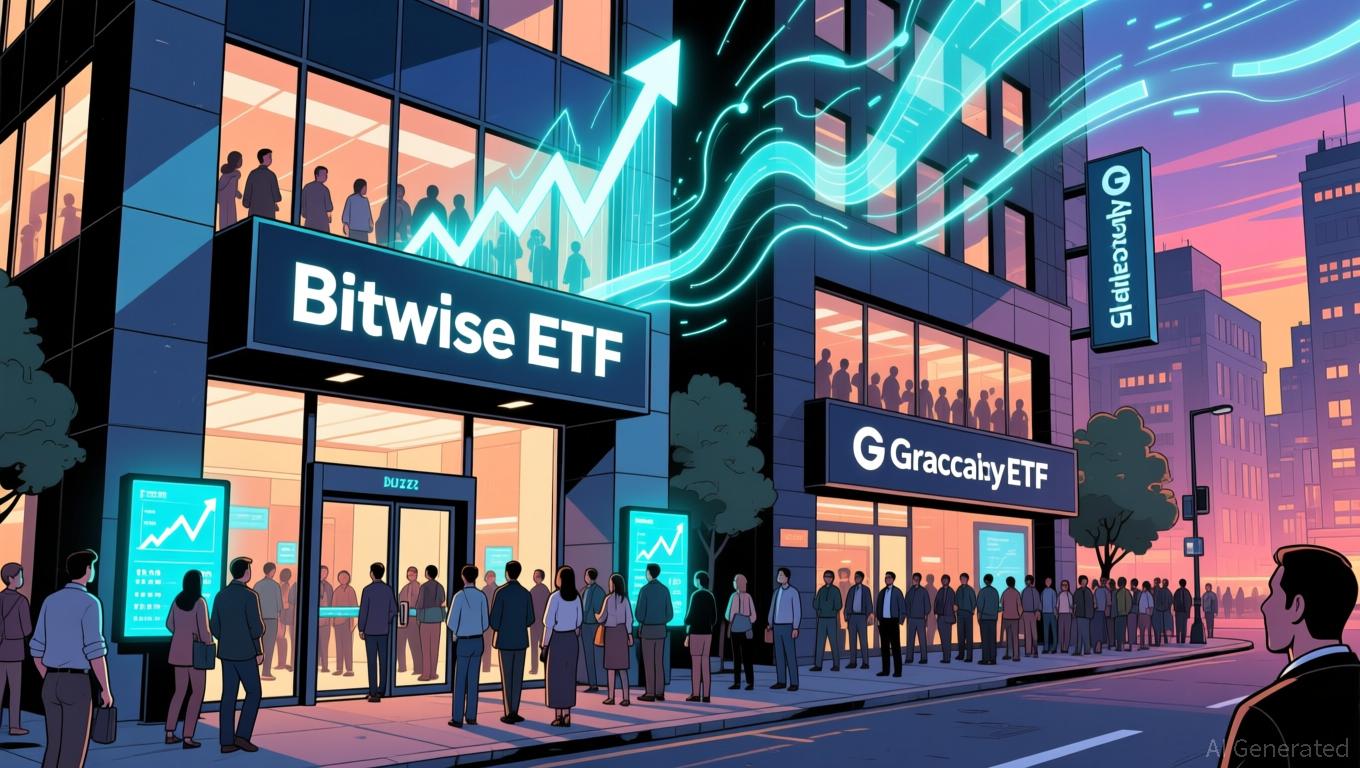The COAI Token Fraud: An Alert for Everyday Cryptocurrency Investors
- COAI token scandal exposes DeFi's systemic risks, causing $116.8M loss and 88% price collapse. - Regulatory ambiguity and unpatched vulnerabilities in DeFi infrastructure enable scams, highlighting audit needs. - Experts advocate AI-driven risk tools and thematic due diligence to address governance gaps and fraud. - Retail investors urged to prioritize audits, KYC/AML compliance, and avoid AI bot scams for self-protection.
Regulatory and Leadership Failures: A Perfect Storm
The collapse of the COAI token was intensified by inconsistent regulatory policies. The U.S. Securities and Exchange Commission (SEC) and Commodity Futures Trading Commission (CFTC) have not yet aligned their approaches to stablecoin classification,
In Southeast Asia, where
Technical Vulnerabilities and the Need for Smart Contract Audits
The COAI token fraud also revealed technical shortcomings in DeFi systems. For example,
Expert Warnings: AI-Driven Risk Management and Thematic Due Diligence
Following the COAI debacle, industry experts are pushing for risk management systems powered by artificial intelligence.
Lessons for Retail Investors: Vigilance in a High-Risk Ecosystem
The COAI token incident offers practical guidance for individual investors:
1. Analyze Tokenomics Carefully: Examine project documentation, team credentials, and community activity.
2. Insist on Smart Contract Audits: Ensure that projects have been independently reviewed by trusted auditors(https://www.bitget.com/news/detail/12560605068422).
3. Be Alert to AI Bot Scams:
4. Emphasize KYC/AML Standards:
Conclusion: A Call for Systemic Change
The COAI token scandal is not an isolated case but reflects deeper, widespread risks within DeFi. Although technological advances continue to fuel growth, the absence of uniform due diligence and clear regulations leaves investors vulnerable. As
Disclaimer: The content of this article solely reflects the author's opinion and does not represent the platform in any capacity. This article is not intended to serve as a reference for making investment decisions.
You may also like
XRP News Today: Institutional Trust in XRP ETFs Fuels Hope Despite Widespread Crypto Slump
- XRP , Bitcoin , and Ethereum face sharp declines amid crypto market correction, with XRP dropping 15% to $2.17 as of November 14. - Analysts highlight XRP's $2.15 support level and potential $2.40–$2.70 rally if ETF inflows and institutional demand sustain momentum. - XRP ETFs attracted $243M net inflows despite whale selling 200M tokens post-launch, signaling mixed short-term pressure and long-term institutional confidence. - Franklin Templeton and Grayscale list XRP ETFs in DTC pipeline, while Bitget's

Bitcoin News Update: Impact of Leverage: $215 Million in Crypto Liquidations Reveal Market’s Underlying Vulnerabilities
- Crypto markets saw $215M+ Bitcoin futures liquidations as prices plummeted below $95,000, triggering panic across digital assets. - Analysts attributed the crash to profit-taking, macroeconomic uncertainty, and leveraged long positions wiping out 77.71% of Bitcoin's liquidations. - Despite turmoil, MicroStrategy's CEO Michael Saylor reaffirmed Bitcoin bullishness, denying claims of selling holdings amid $1.8M in company stock sales. - Tether's $1B robotics investment highlighted shifting capital flows, w

Hyperliquid News Today: Trump Clashes with Greene Regarding Epstein Documents Amid Crypto's Institutional Expansion and Market Fluctuations
- Trump withdraws support for Rep. Greene over Epstein files dispute, deepening GOP fractures amid IRS chief reversal and government reopening. - AMINA AG becomes first foreign crypto bank in Hong Kong with SFC license, expanding institutional access to Bitcoin and Ethereum . - Altcoins like Stellar (XLM) and Hyperliquid (HYPE) face sharp declines due to liquidation pressures and liquidity risks in decentralized markets. - Political tensions and crypto volatility highlight divergent challenges as instituti

Solana Latest Updates: Bitwise's Solana ETF Overtakes Grayscale by Offering Staking and Reduced Fees
- Bitwise's Solana ETF (BSOL) attracted $580M in three weeks, outpacing Grayscale's $24.4M inflows for its competing fund. - BSOL's 0.20% fee and staking integration differentiate it, enabling yield generation on Solana holdings for investors. - The fund's 14-day consecutive inflows highlight institutional confidence, supported by a $222.9M seed investment versus Grayscale's $102.7M. - Growing institutional adoption of crypto-native products signals shifting investor strategies toward blockchain exposure t
